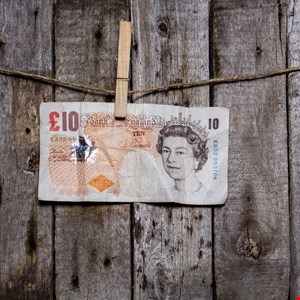- NotebookLM now lets you share your notebooks with anyone with a single link. Here's how
- Cornelis Networks offers alternative to Infiniband or Ethernet for HPC and AI networks
- This Android smartwatch from 2024 still outperforms the competition - and it's on sale
- Stay prepared for summer road trips with this discounted Nexpow roadside emergency bundle
- Learn how to make an AI chatbot from scratch | Docker
Money Launderers Get 33 Years for £70m Scheme

Two foreign nationals have been handed down what are believed to be among the most severe sentences on record for money laundering.
Artem Terzyan, 38, from Russia, was jailed for 17 years, while 44-year-old Lithuanian national Deivis Grochiatskij received 16 years following a four-year operation by the National Crime Agency (NCA) and Metropolitan Police Service unit.
Reporting restrictions were recently lifted following their December sentencing at Kingston Crown Court.
Officers first caught wind of their illegal activity after tracking a car linked to a money laundering gang back to a luxury East London apartment block the pair lived in.
Large bags of cash were observed being transferred to the building. The duo subsequently opened multiple bank accounts under the names of fake businesses and deposited tens of thousands of pounds at a time.
“The money would be sent from one shell company to another in a complex web of transfers, before it was sent out to international accounts held in countries including Germany, Czech Republic, UAE, Hong Kong, and Singapore,” said the NCA.
Following the 2018 arrest of Terzyan and Grochiatskij, police found hand-written ledgers detailing the laundering activity. They also discovered a computer with evidence of the shell companies the duo set up and even incriminating photos of conspirators handling cash in Grochiatskij’s living room.
A financial investigator estimated that they had laundered £36m in 2017-2018, £16m of which came from cash deposits.
While out on bail, the pair claimed fraudulent government Bounce Back Loans for the shell companies they’d set up, to the tune of over £10m. According to the NCA, they claimed £3.2m from a single bank.
Their ability to operate these schemes at such scale and defraud taxpayers of millions of pounds points to a broken anti-money laundering (AML) regime in the UK.
High street lender NatWest was recently fined a record £264m after admitting it failed to stop a major five-year money laundering operation.

